- Home
- H. Rider Haggard
The Lady of Blossholme Page 16
The Lady of Blossholme Read online
Page 16
CHAPTER IX
THE BLOSSHOLME WITCHINGS
On the afternoon of that day the Abbot came again to visit the Nunnery,and sent for Cicely and Emlyn. They found him alone in the guest-hall,walking up and down its length with a troubled face.
"Cicely Foterell," he said, without any form of greeting, "when lastwe met you refused to sign the deed which I brought with me. Well, itmatters nothing, for that purchaser has gone back upon his bargain."
"Saying that he liked not the title?" suggested Cicely.
"Aye; though who taught you of titles and the ins and outs of law? Butwhat need to ask----?" and he glowered at Emlyn. "Well, let it pass, fornow I have a paper with me that you _must_ sign. Read it if you will. Itis harmless--only an instruction to the tenants of the lands yourfather held to pay their rents to me this Michaelmas, as warden of thatproperty."
"Do they refuse, then, seeing that you hold it all, my Lord Abbot?"
"Aye, some one has been at work among them, and the stubborn churls willnot without instruction under your hand and seal. The farms your fatherworked himself I have reaped, but last night every grain of corn andevery fleece of wool were burned in the fire."
"Then I pray you keep account of them, my Lord, that you may pay metheir value when we come to settle our score, seeing that I never gaveyou leave to shear my sheep and harvest my corn."
"You are pleased to be saucy, girl," he replied, biting his lip. "I haveno time to bandy words--sign, and do you witness, Emlyn Stower."
Cicely took the document, glanced at it, then slowly tore it into fourpieces and threw it to the floor.
"Rob me and my unborn child if you can and will, at least I'll be nothief's partner," she said quietly. "Now, if you want my name, go forgeit, for I sign nothing."
The Abbot's face grew very evil.
"Do you remember, woman," he asked, "that here you are in my power? Doyou not know that rebellious sinners such as you are can be shut in adark dungeon and fed on the bread and water of affliction and beatenwith the rods of penance? Will you do my bidding, or shall these thingsfall on you?"
Cicely's beautiful face flushed up, and for a moment her blue eyesfilled with the tears of shame and terror. Then they cleared again, andshe looked at him boldly and answered--
"I know that a murderer can be a torturer also. Why should not he whobutchered the father scourge the daughter too? But I know also thatthere is a God who protects the innocent, though sometimes He is slowto lift His hand, and to Him I appeal, my Lord Abbot. I know, moreover,that I am Foterell and Carfax, and that no man or woman of my blood hasever yet yielded to fear or pain. I sign nothing," and, turning, sheleft the room.
Now the Abbot and Emlyn were alone. Suddenly, before she could speak,for her tongue was tied with rage, he began to rate and curse her andto threaten horrible things against her and her mistress, such things asonly a cruel Spaniard could imagine. At length he paused for breath, andshe broke in--
"Peace, wicked man, lest the roof fall on you, for I am sure that everycruel word you speak shall become a snake to strike you. Will you nottake warning by what befell you last night, or must there be more suchlessons?"
"Oho!" he answered; "so you know of that, do you? As I thought, yourwitchcraft was at work there."
"How can I help knowing what the whole sky blazoned? The fat monks ofBlossholme must draw their girdles tight this winter. Those stolen landsbring no luck, it seems, and John Foterell's blood has turned to fire.Be warned, I say, be warned. Nay, I'll hear no more of your foul tongue.Lay a finger on that poor lady if you dare, and pay the price," and shetoo turned and went.
Ere he left the Nunnery the Abbot had an interview with Mother Matilda.
Cicely must be disciplined, he said; gently at first, afterwards withroughness, even to scourging, if need were--for her soul's sake. Alsoher servant Emlyn must be kept away from her--for her soul's sake, sincewithout doubt she was a dangerous witch. Also, when the time of thebirth of the child came on, he would send a wise woman to wait upon her,one who was accustomed to such cases--for her body's sake and that ofher child. In the midst of the great trouble that had fallen upon themthrough the terrible fire at the Abbey, which had cost them such fearfulloss, to say nothing of the lives of two of the servants and othersburned and maimed, he had not much time to talk of such small things;but did she understand?
Then it was that Mother Matilda, the meek and gentle, brought pain andastonishment to the heart of the Lord Abbot, her spiritual superior.
She did not understand in the least. Such discipline as he suggested,whatever might be her faults and frailty, was, she declared with vigour,entirely unsuited to the case of the Lady Cicely, who, in her opinion,had suffered much for a small cause, and who, moreover, was about tobecome a mother, and therefore should be treated with every gentleness.For her part, she washed her hands of the whole business, and ratherthan enforce such commands would lay the case before the Vicar-Generalin London, who, she understood, was ready to look into such matters.Or at least she would set the Lady Harflete and her servant outside thegates and call upon the charitable to assist them. Of course, however,if his Lordship chose to send a skilled woman to wait upon her in hertrouble, she could have no objection, provided that this woman were aperson of good repute. But in the circumstances it was idle to talk toher of bread and water and dark cells and scourgings. Such thingsshould never happen while she was Prioress. Before they did, she andher sisters would walk out of the Nunnery and leave the King's Courts tojudge of the matter.
Now the state of the Abbot was very like to that of a terrier dog which,being accustomed to worry and torment a certain ewe-sheep, comes uponthe same after it has lambed and finds a new creature--one that, insteadof running in affright, turns upon it and, with head and hood and allits weight of mutton, butts, and leaps, and tramples. Then what chancehas that dog against the terrible and unsuspected fury of the sheep,born, as it thought, for it to tear? Then what can it do but run,panting and discomfited, to its kennel? So it was with the Abbot at theonslaught of Mother Matilda in the defence of her lamb--Cicely. WithEmlyn he had been prepared to exchange bite for bite--but MotherMatilda! his own pet quarry. It was too much. He could only go away,cursing all women and their infinite variety, on which no man mightbuild. Who would have thought it of Mother Matilda, of all people on theearth!
So it came to pass that at the Nunnery, notwithstanding these terriblethreats, things went on much as they had done before, since the timeswere such that even an all-powerful and remote Lord Abbot, with "rightof gallows," could not drive matters to an extremity. Cicely was notshut into the dungeon and fed on bread and water, much less was shescourged. Nor was she separated from her nurse Emlyn, although it istrue that the Prioress reproved her for her resistance to establishedauthority, and when she had finished her lecture, kissed and blessedher, and called her "her sweet child, her dove and joy."
But if there was sameness at the Nunnery, at the Abbey there wasconstant change and excitement. Only three days after the fire the greatflock of eight hundred lambs rushed one night over the Red Cliff on thefell, where, as all shepherds in that country know, there is a sheerdrop of forty feet. Never was lamb's flesh so cheap in Blossholme andthe country round as on the morrow of that night, while every hindwithin ten miles could have a winter coat for the skinning. Moreover,it was said and sworn to by the shepherds that the devil himself, withhorns and hoofs, and mounted on a jackass, had been seen driving thesame lambs.
Next the ghost of Sir John Foterell appeared, clad in armour, sometimesmounted and sometimes afoot, but always at night-time. First thisdreadful spirit was perceived walking in the gardens of Shefton Hall,where it met the Abbot's caretaker--for the place was now shut up--as hewent to set a springe for hares. He was a man advanced in years, yet fewhorses ever covered the distance between Shefton and Blossholme Abbeymore quickly than he did that night.
Nor would he or any other return to his charge, so that henceforthShefton was left as a dwelling for
the ghost, which, as all might seefrom time to time, shone in the window-places like a candle. Moreover,the said ghost travelled far and wide, for on dark, windy nights itknocked upon the doors of those that in its lifetime had been itstenants, and in a hollow voice declared that it had been murdered bythe Abbot of Blossholme and his underlings, who held its daughter indurance, and, under threats of unearthly vengeance, commanded all men tobring him to justice, and to pay him neither fees nor homage.
So much terror did this ghost cause that Thomas Bolle, the swift offoot, was set to watch for it, and returned announcing that he had seenit and that it called him by his name, whereon he, being a bold fellowand believing that it was but a man, sent an arrow straight through it,at which it laughed and forthwith vanished away. More; in proof of thesethings he led the Abbot and his monks to the very place, and showed themwhere he had stood and where the ghost stood--yes, and the arrow, ofwhich all the feathers had been mysteriously burnt off and the woodseared as though by fire, sunk deep into a tree beyond. Then, asthis thing had become a scandal and a dread, the Abbot, in his robes,solemnly laid the ghost, Thomas Bolle showing him exactly where it hadpassed.
This spirit being well and truly laid (like a foundation-stone), theAbbot and his monks returned homeward through the wood, but as they wenta dreadful voice, which all recognized as that of Sir John Foterell,called these words from the shadows of an impenetrable thicket--for nowthe night was falling--
"Clement Maldonado, Abbot of Blossholme, I, whom thou didst murder,summon thee to meet me within a year before the throne of God."
Thereon all fled; yes, even the Abbot fled, or rather, as he said, hishorse did, Thomas Bolle, who had lagged behind, outrunning them everyone and getting home the first, saying _Aves_ as he went.
After this, although the whole countryside hunted for it, Sir John'sghost was seen no more. Doubtless its work was done; but the Abbotexplained matters differently. Other and worse things were seen,however.
One moonlight night a disturbance was heard among the cows, thatbellowed and rushed about the field into which they had been turnedafter milking. Thinking that dogs had got amongst them, the herd anda watchman--for now no man would stir alone after sunset atBlossholme--went to see what was happening, and presently fell down halfdead with fright. For there, leaning over the gate and laughing at them,was the foul fiend himself--the fiend with horns and tail, and in hishand an instrument like a pitchfork.
How the pair got home again, they never knew, but this is certain, thatafter that night no one could milk those cows; moreover, some of themslipped their calves, and became so wild that they must be slaughtered.
Next came rumours that even the Nunnery itself was haunted, especiallythe chapel. Here voices were heard talking, and Emlyn Stower, who waspraying there, came out vowing that she had seen a ball of fire whichrolled up and down the aisle, and in the centre of it a man's head, thatseemed to try to talk to her, but could not.
Into this matter inquiry was held by the Abbot himself, who asked Emlynif she knew the face that was in the ball of fire. She answered that shethought so. It seemed very like to one of his own guards, named AndrewWoods, or more commonly Drunken Andrew, a Scotchman whom Sir ChristopherHarflete was said to have killed on the night of the great burning. Atleast his Lordship would remember that this Andrew had a broken nose,and so had the head in the fire, but, as it appeared to have changed agreat deal since death, she could not be quite certain. All she was sureof was that it seemed to be trying to give her some message.
Now, recalling the trick that had been played with the said Andrew'sbody, the Abbot was silent. Only he asked shrewdly, if Emlyn had seen soterrible a thing there, how it came about that she was not afraid tobe alone in the chapel, which he was informed she frequented much. Sheanswered, with a laugh, that it was men she dreaded, not spirits, goodor ill.
"No," he exclaimed, with a burst of rage, "you do not dread them, woman,because you are a witch, and summon them; nor shall we be free fromthese wizardries until the fire has you and your company."
"If so," replied Emlyn coolly, "I will ask dead Andrew for his messageto you next time we meet, unless he chooses to deliver it to youhimself."
So they parted, but that very night there happened the worst thing ofall. It was about one in the morning when the Abbot, whose window wasset open, was wakened by a voice that spoke with a Scotch accent andrepeatedly called him by his name, summoning him to look out and see.He and others rose and looked, but could see nothing, for the night wasvery dark and rain fell. When the dawn came, however, their searchwas rewarded, for there, set upon a pinnacle of the Abbey church, andstaring straight into the window of his Lordship's sleeping-room, fromwhich it was but a few yards distant, was the dreadful head of AndrewWoods!
Furiously the Abbot asked who had done this horrible thing, but themonks, who were sure that it was the same being that had bewitched thecows, only shrugged their shoulders, and suggested that the grave ofAndrew should be opened to see if he had lost his head. This was done atlength, although, for his own reasons, the Abbot forbade it, talking ofthe violation of the dead.
Well, the grave was opened when Maldon was away on one of his mysteriousjourneys, and lo! no Andrew was there, but only a beam of oakwoodstuffed out with straw to the shape of a man and sewn up in a blanket.For the real Andrew, or rather what was left of him, lay, it may beremembered, in another grave that was supposed to be filled by SirChristopher Harflete.
From this day forward the whole countryside for fifty miles round rangwith the tales of what were known as the Blossholme witchings, of whicha proof was still to be seen by all men in the withered head of Andrewperched upon its pinnacle, whence none could be found to remove itfor love or money. Only it was noted that the Abbot changed hissleeping-chamber, after which, except for a sickness which struck themonks--it was thought from the drinking of sour beer--these bedevilmentswere abated.
Indeed, at that time men had other things to think of, since the air wasthick with rumours of impending change. The King threatened the Church,and the Church prepared to resist the King. There was talk of thesuppression of the monasteries--some, in fact, had already beensuppressed--and more talk of a rising of the faithful in the shires ofYork and Lincoln; high matters which called Abbot Maldon much away fromhome.
One day he returned weary, but satisfied, from a long journey, andamongst the news that awaited him found a message from the Prioress,over which he pondered while he ate his food. Also there was a letterfrom Spain, which he studied eagerly.
Some nine months had passed since the ship _Great Yarmouth_ sailed, andduring this time all that had been heard of her was that she had neverreached Seville, so that, like every one else, the Abbot believed shehad foundered in the deep seas. This was a sad event which he hadborne with resignation, seeing that, although it meant the loss of hisletters, which were of importance, she had aboard of her several personswhom he wished to see no more, especially Sir Christopher Harflete andSir John Foterell's serving-man, Jeffrey Stokes, who was said tocarry with him certain inconvenient documents. Even his secretaryand chaplain, Brother Martin, could be spared, being, Maldon felt, acharacter better suited to heaven than to an earth where the best of menmust be prepared sometimes to compromise with conscience.
In short, the vanishing of the _Great Yarmouth_ was the wise decree ofa far-seeing Providence, that had removed certain stumbling-blocksfrom his feet, which of late had been forced to travel over a rough andthorny road. For the dead tell no tales, although it was true that theghost of Sir John Foterell and the grinning head of Drunken Andrewon his pinnacle seemed to be instances to the contrary. ChristopherHarflete and Jeffrey Stokes at the bottom of the Bay of Biscay couldbring no awkward charges, and left him none to deal with save animprisoned and forgotten girl and an unborn child.
Now things were changed again, however, for the Spanish letter in hishand told him that the _Great Yarmouth_ had not sunk, since two membersof her crew who escaped--how, it was not said--declar
ed that she hadbeen captured by Turkish or other infidel pirates and taken away throughthe Straits of Gibraltar to some place unknown. Therefore, if he hadsurvived the voyage, Christopher Harflete might still be living, and somight Jeffrey Stokes and Brother Martin. Yet this was not likely,for probably they would have perished in the fight, being hot-headedEnglishmen, all three of them, or at the best have been committed to theTurkish galleys, whence not one man in a thousand ever returned.
On the whole, then, he had little cause to fear them, who were dead,or as good as dead, especially in the midst of so many more pressingdangers. All he had to fear, all that stood between him, or rather theChurch, and a very rich inheritance was the girl in the Nunnery and anunborn child, and--yes, Emlyn Stower. Well, he was sure that the childwould not live, and probably the mother would not live. As for Emlyn, asshe deserved, she would be burned for a witch, ere long too, now thathe had time to see to it, and, if she survived her sickness, although hegrieved for her, Cicely, her accomplice, should justly accompany her tothe stake. Meanwhile, as Mother Matilda's message told him, this matterof the child was urgent.
The Abbot called a monk who was waiting on him and bade him send wordto a woman known as Goody Megges, bidding her come at once. Within tenminutes she entered, having, as she explained, been warned to be closeat hand.
This Goody Megges, who had some local repute as a "wise woman," was aperson of about fifty years of age, remarkable for her enormous size, aflat face with small oblong eyes and a little, twisted mouth, which hadcaused her to be nicknamed "the Flounder." She greeted the Abbot withmuch reverence, curtseying till he thought she would fall backwards, andhaving received his fatherly blessing, sank into a chair, that seemed tovanish beneath her bulk.
"You will wonder why I summon you here, friend, since this is no placefor the services of those of your trade," began the Abbot, with a smile.
"Oh, no, my Lord," answered the woman; "I've heard it is to wait uponSir Christopher Harflete's wife in her trouble."
"I wish that I could call her by the honoured name of wife," said theAbbot, with a sigh. "But a mock-marriage does not make a wife, MistressMegges, and, alas! the poor babe, if ever it should be born, will be buta bastard, marked from its birth with the brand of shame."
Now, the Flounder, who was no fool, began to take her cue.
"It is sad, very sad, your Holiness--no, that's wrong; but never mind,it will be right before all's done, and a good omen, I say, coming sosudden and chancy--your Lordship, I mean--not but what there's lotsof the sort about here, as is generally the case round a--I meaneverywhere. Moreover, they generally grow up bad and ungrateful, as Iknow well from my own three--not but what, of course, I was marriedfast enough. Well, what I was going to say was, that when things is so,sometimes it is a true blessing if the little innocents should go off atthe first, and so be spared the finger of shame and the sniff of scorn,"and she paused.
"Yes, Mistress Megges, or at least in such a case it is not for us torail at the decree of Heaven--provided, of course, that the infant haslived long enough to be baptized," he added hastily.
"No, your Eminence, no. That's just what I said to that Smith girl lastspring, when, being a heavy sleeper, I happened to overlie her brat andwoke up to find it flat and blue. When she saw it she took on, bellowinglike a heifer that has lost its first calf, and I said to her, 'Mary,this isn't me; it's Heaven. Mary, you should be very thankful, since myburden has rid you of your burden, and you can bury such a tiny one fornext to nothing. Mary, cry a little if you like, for that's natural withthe first, but don't come here flying in the face of Heaven with yourrailings, and gates, and posts--especially the rails, for Heaven hates'em.'"
"Ah!" asked the Abbot, with mild interest, "and pray what did Mary dothen?"
"Do, the graceless wench? Why, she said, 'Is it rails you're talking of,you pig-smothering old sow? Then here's a rail for you,' and she pulledthe top bar off my own fence--for we were talking by the door--oak itwas, and three by two--and knocked me flat--here's the scar of it on myhead--singing out, 'Is that enough, or will you have the gate and theposts too?' Oh! If there's one thing I hate, it is railing, 'speciallyif made of hard oak and held edgeways."
So the wicked old hag babbled on, after her hideous fashion, while theAbbot stared at the ceiling.
"Enough of these sad stories of vice and violence. Such mischances willhappen, and of course you were not to blame. Now, good Mistress Megges,will you undertake this case, which cannot be left to ignorant nuns?Though times are hard here, since of late many losses have fallen on ourhouse, your skill shall be well paid."
The woman shuffled her big feet and stared at the floor, then looked upsuddenly with a glance that seemed to bore to his heart like a bradawl,and asked--
"And if perchance the blessed babe should fly to heaven through myfingers, as in my time I have known dozens of them do, should I stillget that pay?"
"Then," the Abbot answered, with a smile--a somewhat sickly smile--"thenI think, mistress, you should have double pay, to console you for yoursorrow and for any doubts that might be thrown upon your skill."
"Now that's noble trading," she replied, with an evil leer, "such asone might hope for from an Abbot. But, my Lord, they say the Nunnery ishaunted, and I can't face ghosts. Man or woman, with rails or without'em, Mother Flounder doesn't mind, but ghosts--no! Also Mistress Stoweris a witch, and might lay a curse on me; and those nuns are full ofcrinks and cranks, and can pray an honest soul to death."
"Come, come, my time is short. What is it you want, woman? Out with it."
"The inn there at the ford--your Lordship, will need a tenant nextmonth. It's a good paying house for those who know how to keep theirmouths shut and to look the other way, and through vile scandal and evilslanderers, such as the Smith girl, my business isn't what it was. Nowif I could have it without rent for the first two years, till I had timeto work up the trade----"
The Abbot, who could bear no more of the creature, rose from his chairand said sharply--
"I will remember. Yes, I will promise. Go now; the reverent Motheris advised of your coming. And report to me night and morning of theprogress of the case. Why, woman, what are you doing?" for she hadsuddenly slid to her knees and grasped his robes with her thick, filthyhands.
"Absolution, holy Lordship; I ask absolution and blessing--_paxMeggiscum_, and the rest of it."
"Absolution? There is nothing to absolve."
"Oh! yes, my Lord, there is plenty, though I am wondering who willabsolve _you_ for your half. Also there are rows of little angels thatsometimes won't let me sleep, and that's why I can't stomach ghosts. I'drather sup in winter on cold small ale and half-cooked pork than faceeven a still-born ghost."
"Begone!" said the Abbot, in such a voice that she scrambled to her feetand went, unblessed and unabsolved.
When the door had closed behind her he went to the window and flung itwide, although the night was foul.
"By all the saints!" he muttered, "that beastly murderess poisons theair. Why, I wonder, does God allow such filthy things to live? Cannotshe ply her hell-trade less grossly? Oh! Clement Maldonado, how low areyou sunk that you must use tools like these, and on such a business. Andyet there is no other way. Not for myself, but for the Church, O Lord!The great plot thickens, and all men clamour to me, its head and spring,for money. Give me money, and within six months Yorkshire and the Northwill be up, and without a year Henry the Anti-Christ will be dead andthe Princess Mary fast upon the throne, with the Emperor and the Popefor watchdogs. That stiff-necked Cicely must die and her babe must die,and then I'll twist the secret of the jewels out of the witch, Emlyn--onthe rack, if need be. Those jewels--I've seen them so often; why, theywould feed an army; but while Cicely or her brat lives where is my claimto them? So, alas! they must die, but oh! the hag is right. Who shallgive me absolution for a deed I hate? Not for me, not for me, O myPatron, but for the Church!" and flinging himself to the floor beforethe holy image of his chosen Saint, he rested his hea
d upon its feet andwept.

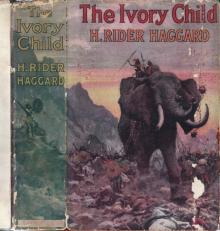 The Ivory Child
The Ivory Child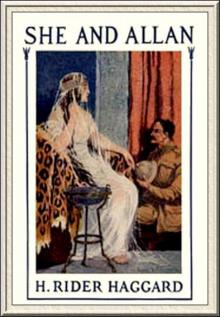 She and Allan
She and Allan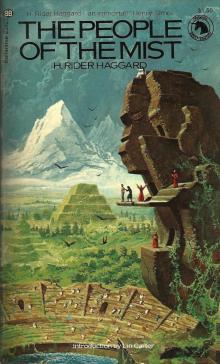 The People of the Mist
The People of the Mist She
She Morning Star
Morning Star King Solomon's Mines
King Solomon's Mines She: A History of Adventure
She: A History of Adventure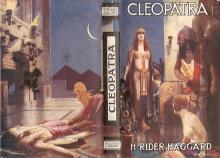 Cleopatra
Cleopatra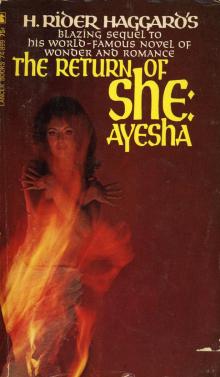 Ayesha, the Return of She
Ayesha, the Return of She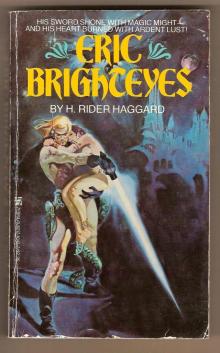 Eric Brighteyes
Eric Brighteyes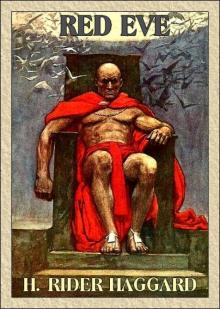 Red Eve
Red Eve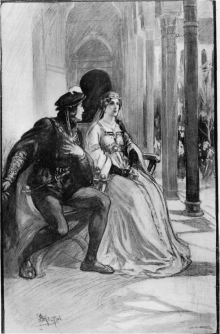 Fair Margaret
Fair Margaret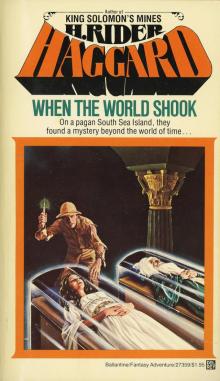 When the World Shook
When the World Shook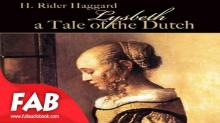 Lysbeth, a Tale of the Dutch
Lysbeth, a Tale of the Dutch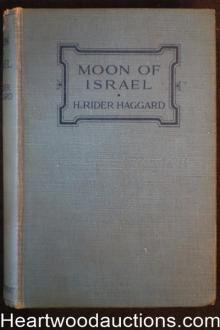 Moon of Israel: A Tale of the Exodus
Moon of Israel: A Tale of the Exodus Long Odds
Long Odds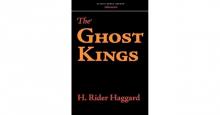 The Ghost Kings
The Ghost Kings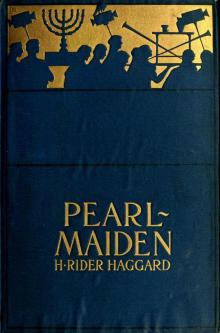 Pearl-Maiden: A Tale of the Fall of Jerusalem
Pearl-Maiden: A Tale of the Fall of Jerusalem Allan and the Holy Flower
Allan and the Holy Flower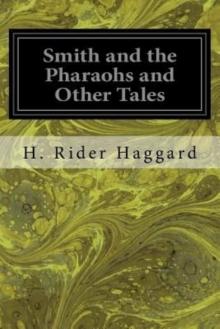 Smith and the Pharaohs, and other Tales
Smith and the Pharaohs, and other Tales The Wanderer's Necklace
The Wanderer's Necklace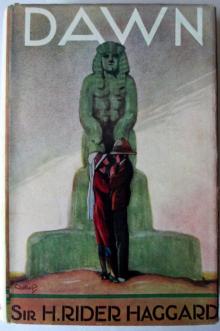 Dawn
Dawn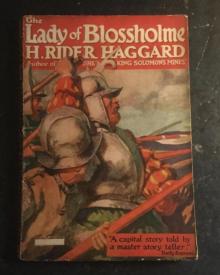 The Lady of Blossholme
The Lady of Blossholme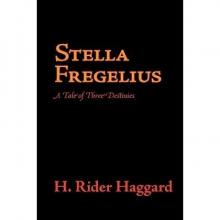 Stella Fregelius: A Tale of Three Destinies
Stella Fregelius: A Tale of Three Destinies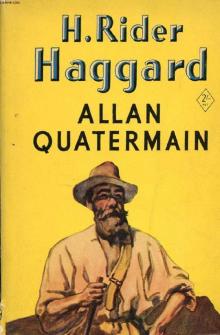 Allan Quatermain
Allan Quatermain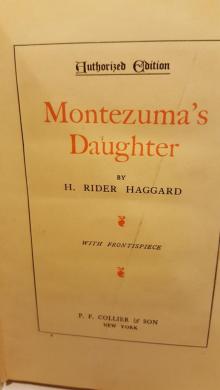 Montezuma's Daughter
Montezuma's Daughter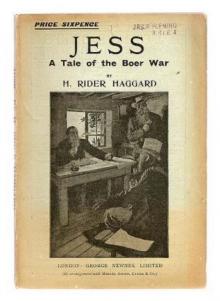 Jess
Jess The Brethren
The Brethren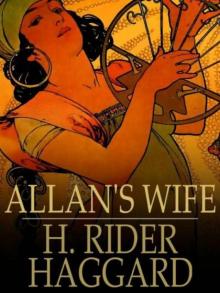 Allan's Wife
Allan's Wife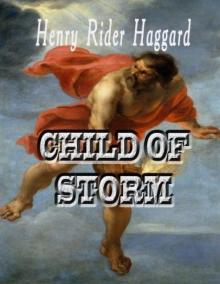 Child of Storm
Child of Storm Queen Sheba's Ring
Queen Sheba's Ring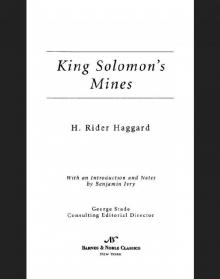 King Solomon's Mines (Barnes & Noble Classics Series)
King Solomon's Mines (Barnes & Noble Classics Series)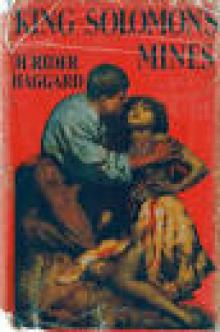 Complete Allan Quatermain Omnibus - Volumes 1 - 10
Complete Allan Quatermain Omnibus - Volumes 1 - 10